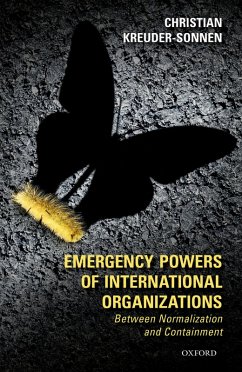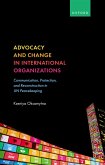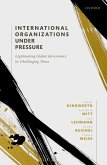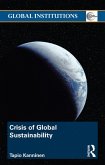Emergency Powers of International Organizations explores emergency politics of international organizations (IOs). It studies cases in which, based on justifications of exceptional necessity, IOs expand their authority, increase executive discretion, and interfere with the rights of their rule-addressees. This ''IO exceptionalism'' is observable in crisis responses of a diverse set of institutions including the United Nations Security Council, the European Union, and the World Health Organization. Through six in-depth case studies, the book analyzes the institutional dynamics unfolding in the wake of the assumption of emergency powers by IOs. Sometimes, the exceptional competencies become normalized in the IOs' authority structures (the ''ratchet effect"). In other cases, IO emergency powers provoke a backlash that eventually reverses or contains the expansions of authority (the "rollback effect"). To explain these variable outcomes, this book draws on sociological institutionalism to develop a proportionality theory of IO emergency powers. It contends that ratchets and rollbacks are a function of actors' ability to justify or contest emergency powers as (dis)proportionate. The claim that the distribution of rhetorical power is decisive for the institutional outcome is tested against alternative rational institutionalist explanations that focus on institutional design and the distribution of institutional power among states. The proportionality theory holds across the cases studied in this book and clearly outcompetes the alternative accounts. Against the background of the empirical analysis, the book moreover provides a critical normative reflection on the (anti) constitutional effects of IO exceptionalism and highlights a potential connection between authoritarian traits in global governance and the system's current legitimacy crisis.
Dieser Download kann aus rechtlichen Gründen nur mit Rechnungsadresse in A, B, BG, CY, CZ, D, DK, EW, E, FIN, F, GR, HR, H, IRL, I, LT, L, LR, M, NL, PL, P, R, S, SLO, SK ausgeliefert werden.









